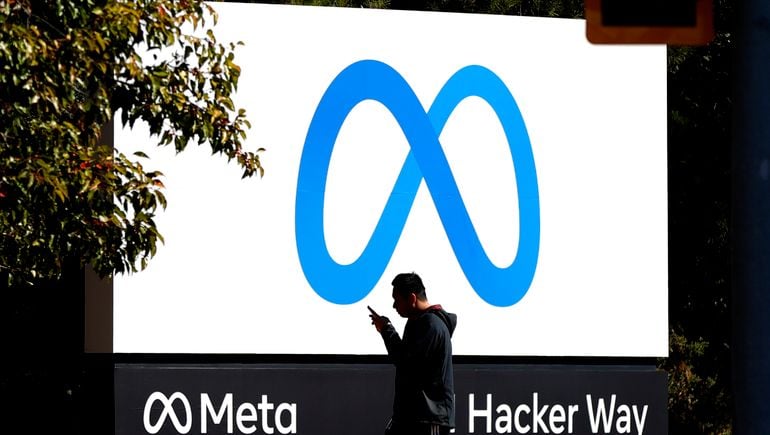SOCIAL
Meta’s Developing a Decentralized Twitter Alternative, According to Reports

Because of course it is.
With many Twitter users unhappy about the platform’s changes under Elon Musk, and amid a growing push towards a new approach to social networking, with alternative systems of moderation and management, Meta is looking to seize the opportunity, by launching its own, Twitter-like social app, which will be focused on short, text-based updates.
As reported by Platformer and MoneyControl, Meta’s developing a new platform, currently titled ‘P92’, which sounds very similar to a Twitter feed, and interestingly, would be decentralized, aligning with the new wave social media push.
Meta has confirmed the project to Platformer via the following statement:
“We’re exploring a standalone decentralized social network for sharing text updates. We believe there’s an opportunity for a separate space where creators and public figures can share timely updates about their interests.”
The project will reportedly incorporate support for decentralized social networking protocol ActivityPub, which would be Meta’s first step into the decentralized social media space. Which is a big step – Meta, in large part, is the reason why there’s been such a big push towards decentralization, due to the way that it’s gathered and controlled user data and experiences.
Now, Meta could lead the way in the next phase – which, again, makes sense, given that Meta is always working to latch onto every new trend. But it could be a significant variance in approach for the company.
Current Instagram chief Adam Mosseri is reportedly leading the charge on the new app.
Amid the disruption of Elon Musk’s takeover at Twitter, many have sought alternatives, with a raft of Twitter-like social networks cropping up – from Mastodon, to Post, to Spill, T2, and various others. A key focus of all of these alternative platforms has to embed the lessons learned from social networks past, which has seen some looking to institute alternative moderation systems from the get-go, in order to avoid the complications of bias and perceived censorship, while there’s also been a bigger push towards data portability and the capacity to take your information with you to other platforms, if you so choose.
In this context, a decentralized approach makes sense. Decentralized social networks rely on an expanded web of individual servers, which then enables different elements and communities to set different rules, and enables users to retain their information, without an overseeing company sucking in all the data, and dictating what can and cannot be done.
In theory, this makes perfect sense, but in practice, decentralized social is much more complex, putting more onus on users to understand and apply different processes, which can be frustrating for some.
Mastodon has been heavily criticized for this, with users needing to switch servers to follow others, or understand an expanding range of differing rules and parameters for each instance.
For those engaged in tech circles, and invested in the relevant outcomes, that’s okay, but the vast majority of people are not in that category, which means the added complexity is just friction that stops them from doing what they want. And with social media users already accustomed to the relative simplicity of the Web 2.0 approach, it’s a hard sell – which is why Mastodon, despite seeing a massive increase in interest following the Musk takeover, has declined in usage ever since.
(Graphic via The Guardian)
But despite the dip, there is clearly interest in this approach, which is why Meta’s paying attention. Add to this the fact that more people are now interacting via DMs than they are posting to their Facebook or Instagram feeds, and it makes sense that Meta would be exploring this approach – at the least, to ensure that if decentralized social does take off, it doesn’t miss the boat.
Meta’s already been looking to lean into the DM sharing trend, with newer functions like ‘Channels’ on Instagram, which provides a means for creators and public figures to effectively broadcast updates in chat threads.
A dedicated, text-based social network sounds fairly similar, with the added capacity to integrate data from independent servers, which, potentially, could enable Meta to both stay in touch with this shift, while also gathering up Twitter cast-offs.
There’s not much to go on as yet, so we don’t really know how it will look in practice. But it could align with several emerging trends – and if Meta can make a functional, viable Twitter alternative, which works more efficiently than Mastodon, it also then has the network capacity to promote its new platform to billions of people, something that these smaller competitors cannot do.
Still, much of the Web3 movement has cropped up in opposition to the big tech giants dominating the space. Will Web3 adopters be keen to see Meta weighing into the space?
Will that matter?
Again, while tech watchers are the most heavily invested in the decentralization push, the majority of users just want usability, and if Meta can get that element right, maybe, the rest is just details.
That, at least in theory, could see Meta winning out, and dominating through replication once again.
It’s very early days, and the project may not even make it past prototype phase. But it’s an interesting development, which could be a significant new push.

















